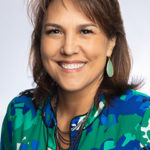Building a sustainable Leadership and Mentorship Program
Interview by Christine Faria, Raving VP of Marketing with Paula Allen, Raving Partner, Leadership & Development and Enrolled Tribal Citizen of the Jamestown S’Klallam Tribe, and Dan Stromer, Raving Partner, Executive Tribal Development and Senior Operations
Tribal casinos that have created a successful, enterprise-wide culture of leadership and service is not something that happens overnight and is still a challenge for most organizations. At Raving, one of the many conversations we have with our clients starts like this:
“We’ve invested in guest service frontline and management programs in the past; it does well for a while, but then there’s a disruption or several months go by and team members become disengaged and service levels plummet.” Or …
“We have Tribal members who we’ve put into management roles that we’re grooming for senior positions. They’re frustrated and not performing well, and the teams that they are managing are resentful that they have more experience than their manager!”
The solution might not be an easy one, but there is a solution!
Raving has a team of folks that work with Tribal organizations looking to truly make a change in their culture. In brief, it starts with gathering the right data through research (team members and senior management), and then it is a very targeted, progressive plan that embodies a detailed curriculum, measurement tools, and individual education programs.
In this article, we talk with two of Raving’s Tribal leadership team members, Paula Allen, an enrolled Tribal Citizen of the Jamestown S’Klallam Tribe who serves as her Tribe’s Director of Leadership and Guest Development, and has worked with Indian gaming organizations throughout the country. Dan Stromer heads our Executive Development and Operations team, and has devoted his career to developing Tribal members and team members for career advancement through his long-term role of being GM of a Tribal casino.
Let’s get started!
Chris: Paula, you gained your initial experience working with your own Tribe. The process to build a top-down leadership program and THEN incorporate guest service took several years to lay the foundation. Now it’s part of your culture. What are three pieces of advice you’d give to other Tribal casinos that want to embark on strengthening their leadership and service culture?
1. I think it’s important for a senior leadership team to collectively agree on where their organization is and where they want to be. We call it “Baseline View”; we set metrics to measure our success throughout the journey and take leadership inventory to assess the primary needs.
2. After we agree on the status of the organization, it’s important to create the vision. What do we see our leadership teams accomplishing? How do we want them to conduct themselves while leading our teams? The senior leadership team should set the tone for leadership; it’s important for them to articulate their expectations.
3. Next is implementation. Far too often we spend way too much time and resources on tools, and very little attention is given to implementation. How will we incorporate this into our culture? How will we ensure accountability? How do I get my teams involved in a way that they feel organically connected to the team? We need a visual roadmap, a plan.
Chris: Dan, you’ve spent your career in Tribal gaming, most recently, 17 years as a General Manager. Developing Tribal leaders has always been a passion for you. What are your three pieces of advice to an organization looking to build a Tribal Development program for future operators?
1. Develop material that is relevant and meaningful to the running of a casino
This is important from both a practical and theoretical perspective. Understand the results of the decisions you make each day and the impact they will have on the business. Provide them information that they will actually use.
2. Choose people committed to the program
Contrary to popular belief, being a GM or Director is more than walking around and shaking hands. People coming into these positions need to understand that it is hard work. Being a Director or GM is not sitting behind a desk all day. Be visible and let your team know that you are aware of what is going on.
3. It should be more than just a program to choose a General Manager
Not everyone wants to be a GM. Having material that addresses all areas of development is important. This includes Directors, Managers, and Supervisory level positions that all members have an opportunity to advance in. The skills necessary are not that far apart, but until someone explains the significance of those skills in use, it may go unnoticed.
Chris: Paula and Dan, what makes Tribal enterprises unique to work with as opposed to commercial gaming or other businesses? And what does that mean to the program that you design?
Paula: This is a subject near and dear to my heart. Being a Tribal citizen, I am always preparing for the next seven generations. It goes into everything I do on a daily basis. The programs I implement into our resort will be around long after I retire, and the leadership programs I implemented at my Tribe will be helping the next seven generations accomplish their goals.
What makes us unique should be our strategy to educate and train our Tribal citizens in an efficient manner. I believe this should start at the elementary level. Our Tribal youth should be educated on their heritage, so they become proud of who they are. They should be taught leadership skills to exhibit throughout the tribal organization so they become respected throughout the Tribe. If we start here, it’s easier to shape a Tribal team member when they are competing for a supervisor position.
Dan: To me, the biggest difference is a Tribal Casino is still a family-oriented enterprise. Which culturally is in line with Tribes and their history. With IGRA, it also fits the definition of promoting Tribal economic development, self-sufficiency and strong Tribal government.
The program requires a little more patience than what a commercial enterprise would. Explaining the WHY in your programs is more important than others. In essence, you are helping to mold individuals for long-term success. The commercial enterprise is more immediate and results-based. Should those results or expectations not be met, it’s time to move on to the next one.
However, that does not mean that there is not accountability in a plan. Candidates need to know what they are signing up for and that they have responsibilities to not only themselves, but to the department, the casino and the Tribe. The information that you present to them is critical to assist in the development of all participants at all levels.
Chris: One final question to wrap up this article. Paula and Dan, you’ve laid out progressive and sustainable plans for organizations and Tribal members in your careers. What would be your top three things that sabotage the best laid programs?
Paula: I can narrow it down to three things:
- A disengaged leadership team. The entire senior leadership team needs to own the process in order to guarantee the success of the program.
- No follow-up on training, no implementation plan for new tools.
- No connection to a coach. CEO coaches Directors, Directors coach Managers, Managers coach Supervisors. There should be a set plan to build those relationships.
Dan: I agree wholeheartedly with Paula’s point about a disengaged leadership team. Here’s my take on why programs fail:
1. Management Change
To me, continuity of management is one of the most important factors in a successful program. When leadership is constantly changing direction, the program also changes. The start/stop, start/stop effect on the participants really leaves them dangling in the wind as to what is happening. One group’s philosophy can be completely different than another’s. This does not apply only to the casino management, but the Tribe as well. As Tribal Councils change their opinions of what the programs should be and who is in the program and who is not, it can greatly disrupt the progress. Having a solid plan that is outlined with the goals and objectives, and the ability to stick to it is in everybody’s best interest.
2. Management’s lack of commitment to the plan
Too often we hear the term “working myself out of a job” when we are referring to development programs. If that is the case, you are only looking at it from a shortsighted perspective. There will always be a reason why somebody is not ready to be promoted to move into the GM role or other positions. To some extent I understand that concern, but we also know what we signed up for. If management is not committed to putting a plan into place, it has little chance to succeed. What is unrecognized in this scenario is how much more valuable that individual is when he can do his job and also teach someone else to do it. Recognizing what your skill set is now that you achieved a successful developmental program, and what you can do with it and where you can go, has tremendous opportunities. Unfortunately, too many only look at it from a short-term perspective. The ability to teach others to be successful is a unique skill that will always place you in high demand.
3. Political
The elephant in the room that nobody probably wants to bring up can have the biggest impact. Not a day goes by that it seems like there is not a political headline that catches our attention in one way or another on a national level. Developmental programs should have the goal of developing the best candidates to achieve the best results for the long-term interest of the Tribe. Hopefully all decisions are reached on that basis. How we choose candidates and leaders to be in these programs should be based on some criteria. Work history and skills, education, knowledge, attitude, work ethic, etc. Taking the personal bias out of that process is important. Ultimately you are looking at choosing the best people to ensure the long-term success of the operation. That responsibility should not be taken lightly by those choosing or those applying. Because both sides are making a commitment at that point that they are accepting the responsibility to ensure the well-being of the Tribe and its members for generations to come.
Special thanks to Paula and Dan for sharing their insight. If you’re interested in building a Tribal Development Program or creating a more effective and sustainable leadership and guest service program that is specifically tailored to your organization, give us a call today. We’ve helped hundreds of commercial and Tribal casinos across the globe. What makes our trainers different? They’ve walked in your shoes! Call Amy Hergenrother at 775-329-7864, or email amy@betravingknows.com.



